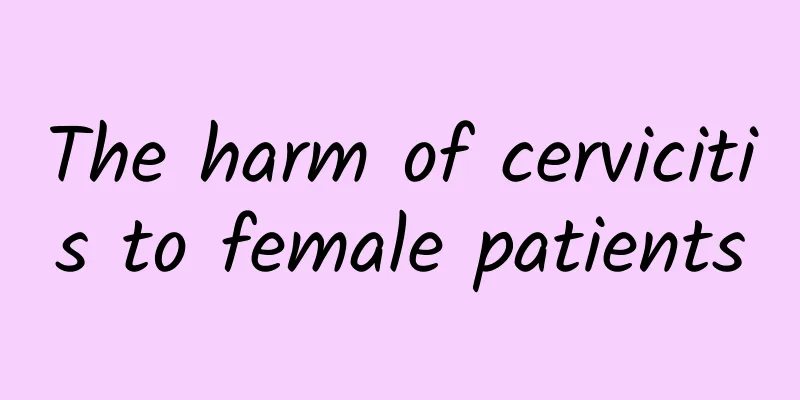What medicine can stop bleeding effectively for women with functional uterine bleeding?

|
Functional uterine bleeding can be effectively stopped by medication. Commonly used medications include hormone drugs, hemostatic drugs, and Chinese medicine conditioning. The specific choice should be determined according to the cause of bleeding and individual conditions. It is recommended to use it under the guidance of a doctor. 1. Hormone drugs Hormonal drugs are the first choice for treating functional uterine bleeding, which can stop bleeding by regulating hormone levels in the body. Commonly used drugs include: Oral contraceptives: such as ethinyl estradiol cyproterone acetate tablets, can quickly stop bleeding and regulate the menstrual cycle. Progesterone: such as dydrogesterone tablets, suitable for bleeding caused by luteal insufficiency. Estrogen: such as estradiol valerate tablets, which are suitable for bleeding caused by low estrogen levels. 2. Hemostatic drugs Hemostatic drugs relieve symptoms by promoting clotting or reducing the amount of bleeding. Commonly used drugs include: Tranexamic acid tablets: reduce bleeding by inhibiting plasmin activity. Vitamin K: Promotes the synthesis of coagulation factors and improves coagulation function. Ethamidine injection: used for rapid hemostasis in acute bleeding. 3. Chinese medicine conditioning Traditional Chinese medicine improves the body's constitution through overall conditioning and achieves the effect of stopping bleeding. Commonly used traditional Chinese medicines include: Guipi Decoction: It has the effects of replenishing qi and blood, regulating menstruation and stopping bleeding. Xiaoyao Pills: Soothe liver and relieve depression, regulate menstruation, suitable for bleeding caused by emotional fluctuations. Wu Ji Bai Feng Wan: nourishes the liver and kidneys, regulates Qi and blood, suitable for bleeding caused by deficiency of both Qi and blood. 4. Diet and lifestyle adjustments In addition to medication, diet and lifestyle can also help stop bleeding. Dietary recommendations: Eat more iron-rich foods such as spinach and lean meat, supplement vitamin C to promote iron absorption, and avoid spicy and irritating foods. Lifestyle: Maintain a regular schedule, avoid overwork, and do some light exercise such as yoga or walking. The treatment of functional uterine bleeding needs to be formulated according to the specific cause and individual situation. Drug treatment is the main means. Hormonal drugs, hemostatic drugs and Chinese medicine conditioning each have their own advantages. At the same time, diet and lifestyle adjustments have a positive effect on improving symptoms. It is recommended to choose the appropriate treatment method under the guidance of a doctor and conduct regular review to ensure efficacy and safety. |
<<: What tests are done to diagnose sinus atresia?
>>: How to treat mild cervical erosion and cervical hypertrophy
Recommend
How to detect adnexitis
Adnexitis can be diagnosed through gynecological ...
How much pelvic fluid is normal?
How much pelvic fluid is normal? Pelvic fluid acc...
How to calculate your menstrual cycle
How to calculate the menstrual cycle? Menstruatio...
How long can cervicitis and pelvic inflammatory disease be cured?
How long does it take to cure cervicitis and pelv...
Ways to help prevent adnexitis in daily life
The incidence of adnexitis in China is very high,...
What does perimenopause mean?
What does perimenopause mean? Perimenopause refer...
Tips for women to prevent menopause
We must actively grasp the prevention methods of ...
Is there any way to prevent uterine fibroids?
There is no clear way to prevent uterine fibroids...
Nightmare of middle-aged women! I'm afraid of the pear figure
Where is fat Fat accumulates below the waist, inc...
What are the symptoms of ectopic pregnancy in women?
What are the symptoms of ectopic pregnancy in wom...
Body sculpting creates perfect body curves bit by bit (Part 2)
More body sculpting methods: Full tummy tuck This...
Is threatened abortion dangerous?
If a pregnant woman has symptoms of threatened ab...
The most important preventive measures for dysmenorrhea in daily life
During menstruation, the most common disease is d...
Stay at home and lose weight in the haze! 5 ways to slim down your belly and legs with a towel
[Key points]: After watching Chai Jing's &quo...
How to take care of endometrial tuberculosis
How should we care for endometrial tuberculosis i...









